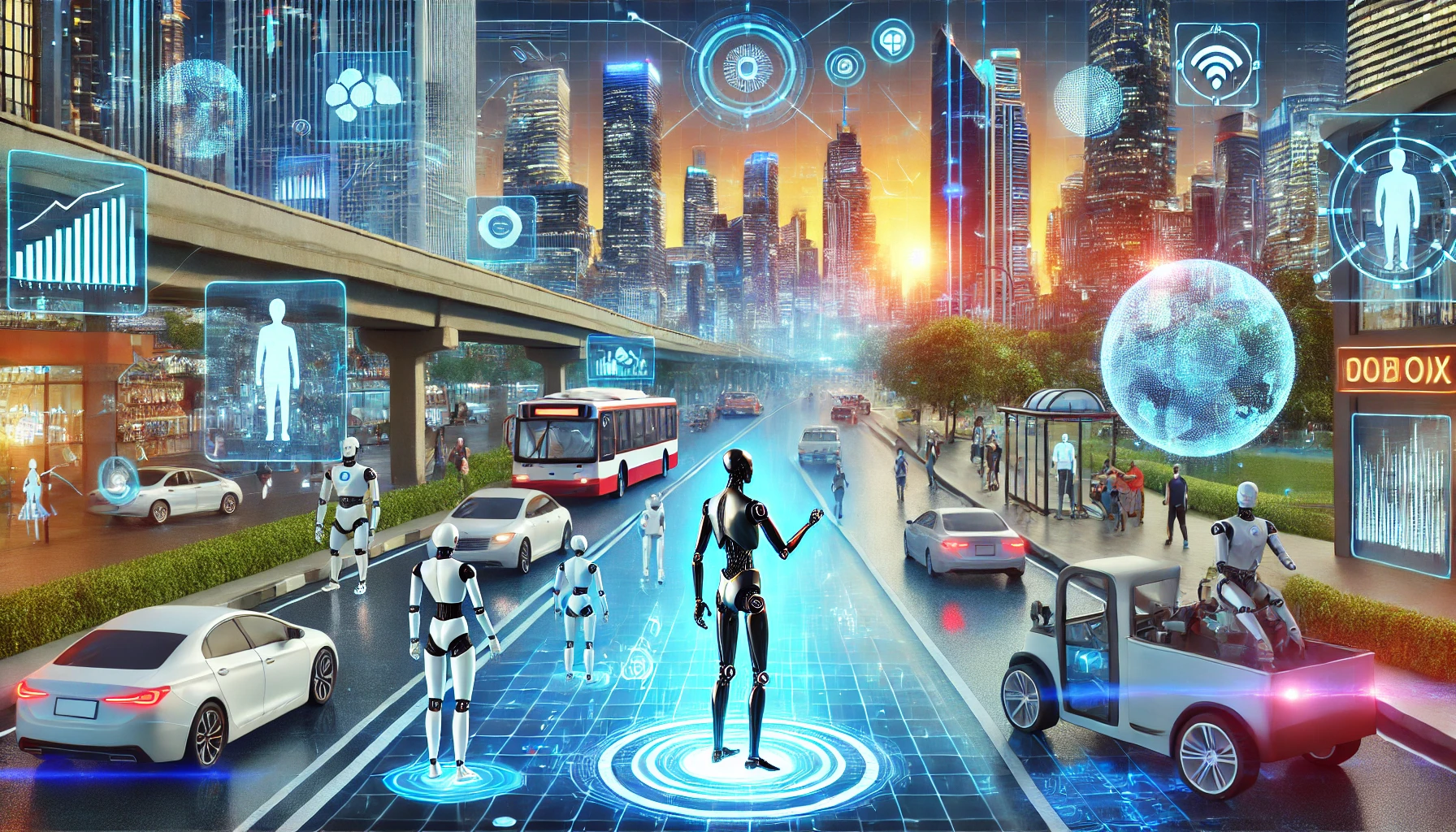Artificial Intelligence (AI) is no longer just a futuristic concept—it is actively shaping our daily lives and the world around us. From automating tasks to personalizing experiences, AI has become an integral part of industries, businesses, and even our homes. But what does the future of AI hold? How will it continue to evolve and impact society?
In this article, we will explore the key areas where AI is making significant advancements, the opportunities and challenges it presents, and what we can expect in the years to come.
The Evolution of AI: From Science Fiction to Reality
AI has come a long way from the days when it was merely a subject of science fiction. Today, AI-powered systems can process vast amounts of data, recognize patterns, and make autonomous decisions.
Some key milestones in AI development include:
- 1956: The term “Artificial Intelligence” was coined at the Dartmouth Conference.
- 1997: IBM’s Deep Blue defeated world chess champion Garry Kasparov.
- 2011: IBM Watson won against human contestants on the game show Jeopardy!.
- 2016: Google’s AlphaGo defeated the world champion in the complex game of Go.
- Today: AI is used in self-driving cars, medical diagnosis, customer service, and more.
With each breakthrough, AI has become more sophisticated and capable of solving complex problems, making it an essential tool across various industries.
How AI Is Transforming Different Sectors
1. Healthcare: Revolutionizing Medical Diagnosis and Treatment
AI is playing a crucial role in the healthcare industry by improving disease detection, personalizing treatments, and assisting doctors in making accurate diagnoses.
- AI algorithms analyze medical images (X-rays, MRIs) to detect diseases like cancer earlier than human doctors.
- Wearable devices use AI to monitor patients’ vital signs and predict health issues before they become serious.
- AI-driven drug discovery accelerates the process of finding new treatments.
2. Education: Personalized Learning Experiences
AI is transforming education by creating customized learning experiences for students. Adaptive learning platforms adjust lessons based on a student’s progress, making learning more efficient and engaging.
- AI tutors provide instant feedback and assistance.
- Automated grading reduces the workload for teachers.
- Language-learning apps use AI to provide personalized lessons and real-time pronunciation feedback.
3. Business and Marketing: Smarter Customer Engagement
Companies are using AI to enhance customer experiences, streamline operations, and boost sales.
- AI chatbots handle customer inquiries 24/7, improving customer service.
- Predictive analytics help businesses understand consumer behavior and optimize marketing strategies.
- AI-powered recommendation engines (like those used by Netflix and Amazon) personalize content and product suggestions.
4. Transportation: The Rise of Autonomous Vehicles
Self-driving cars, powered by AI, are expected to revolutionize the transportation industry. AI enables these vehicles to:
- Navigate roads using advanced sensors and machine learning.
- Reduce human errors and improve road safety.
- Optimize traffic flow and reduce congestion through smart city integrations.
5. Finance: AI-Powered Fraud Detection and Investment Strategies
Financial institutions rely on AI to detect fraudulent activities and make data-driven investment decisions.
- AI identifies suspicious transactions in real-time to prevent fraud.
- Robo-advisors provide automated investment guidance based on market trends.
- Algorithmic trading optimizes stock market investments with high-speed data analysis.
6. Entertainment: Enhancing Content Creation and Consumption
AI is reshaping the entertainment industry by creating music, writing scripts, and even generating deepfake videos.
- AI-generated music and artwork are gaining popularity.
- Streaming platforms use AI to recommend content based on user preferences.
- Deepfake technology, while controversial, is being explored for movie special effects.
Challenges and Ethical Concerns of AI
Despite its many benefits, AI also presents challenges that must be addressed:
1. Job Displacement
As AI automates tasks, certain jobs may become obsolete. While AI creates new job opportunities, workers in traditional industries may struggle to adapt.
2. Data Privacy and Security
AI systems rely on massive amounts of data, raising concerns about data privacy. Companies must ensure that AI applications comply with data protection laws.
3. Ethical AI and Bias
AI algorithms can inherit biases from their training data, leading to unfair outcomes in hiring, law enforcement, and other fields. Ethical AI development is crucial to prevent discrimination.
4. Autonomous Weapons and AI in Warfare
The use of AI in military applications raises moral and security concerns. The development of autonomous weapons could lead to unintended consequences.
The Future of AI: What’s Next?
As AI continues to advance, we can expect even greater integration into our lives. Some potential future developments include:
- Artificial General Intelligence (AGI): AI that can perform any intellectual task a human can do.
- AI in Space Exploration: Assisting in planetary exploration and analyzing cosmic data.
- AI-Enhanced Creativity: Generating original literature, music, and visual art indistinguishable from human creations.
- AI in Mental Health: Offering advanced therapy and emotional support through virtual assistants.
Final Thoughts: Embracing AI Responsibly
AI has the power to revolutionize the world, but it must be developed and used responsibly. As AI technology advances, it is essential for governments, businesses, and individuals to address ethical concerns and ensure that AI benefits humanity as a whole.
By understanding AI’s impact and staying informed about its progress, we can shape a future where AI enhances our lives while minimizing its risks.
